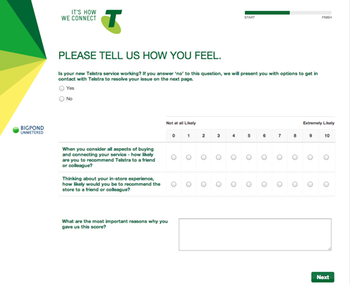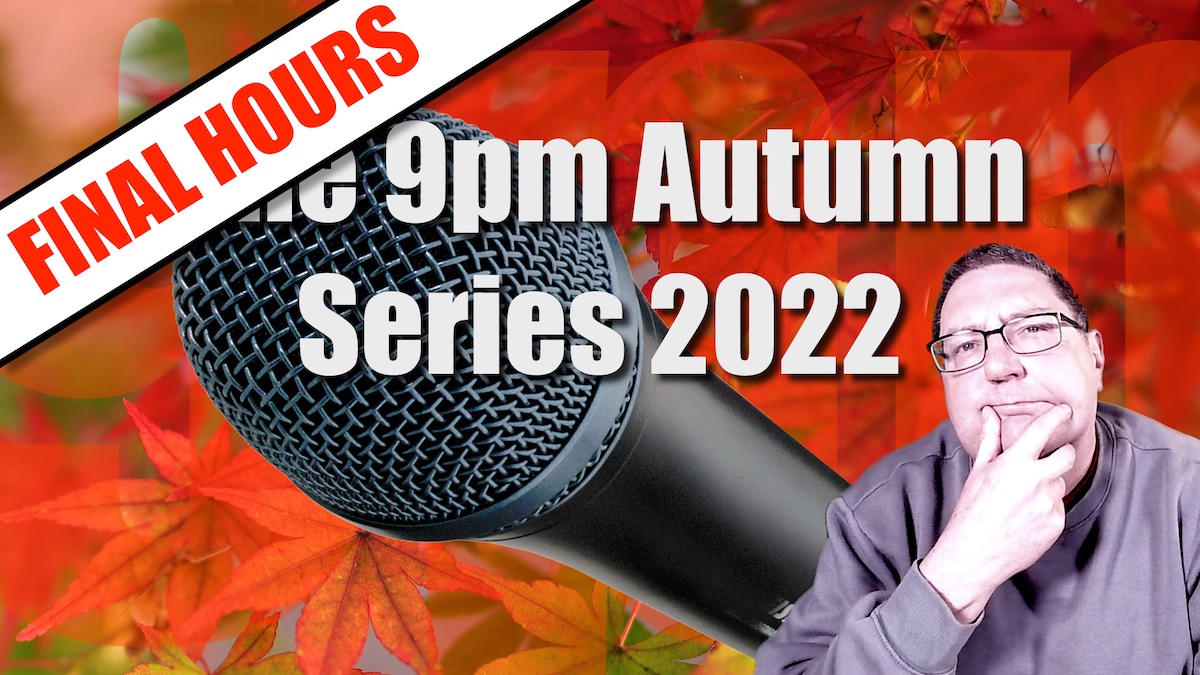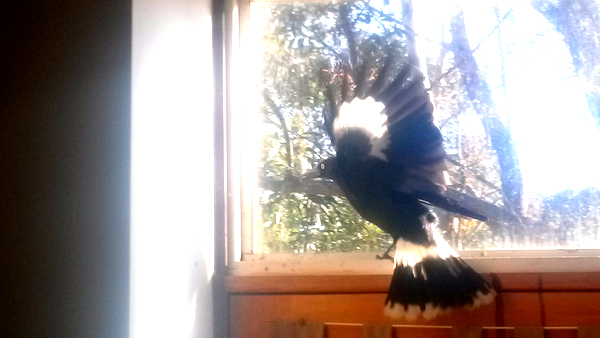 With all their constant worrying about whether people would recommend them or not, like this example from Telstra, I’m starting to think that most big corporations are paranoid psychotics — and not in a good way.
With all their constant worrying about whether people would recommend them or not, like this example from Telstra, I’m starting to think that most big corporations are paranoid psychotics — and not in a good way.
The other day I conducted a perfectly routine transaction at a Telstra Shop. I cancelled a mobile broadband service and replaced it with a different one. As with many businesses, my visit was followed up with a brief survey, “Please tell us how you feel.”
There were four questions, but none of them actually asked me how I felt:
Is your new Telstra service working? If you answer ‘no’ to this question, we will present you with options to get in contact with Telstra to resolve your issue on the next page.
OK, that’s fair enough. You need to know that the customer has a working broadband service. But the other three?
When you consider all aspects of buying and connecting your service — how likely are you to recommend Telstra to a friend or colleague?
Thinking about your in-store experience, how likely would you be to recommend the store to a friend or colleague?
What are the most important reasons why you gave us this score?
Guys, this goes way beyond “Does my bum look fat in this?” This is self-obsession. “What are you going to tell people about us? Why, what did I do?”
These constant questions about likelihood of being recommended are a sign of paranoia. I don’t care how you feel, I gave you money. Recommending you or not just isn’t a KPI for me.
How about you ask questions that reflect the customer’s needs and aspirations? Or even just concrete questions about how long I had to wait, whether staff were polite, or whether the service meets my needs?



 My week of Monday 20 to Sunday 26 October 2014 was moderately productive. Not as productive as I’d hoped, but close enough.
My week of Monday 20 to Sunday 26 October 2014 was moderately productive. Not as productive as I’d hoped, but close enough.
 “How do you think that tweeting your day plans affects your personal safety?”
“How do you think that tweeting your day plans affects your personal safety?”